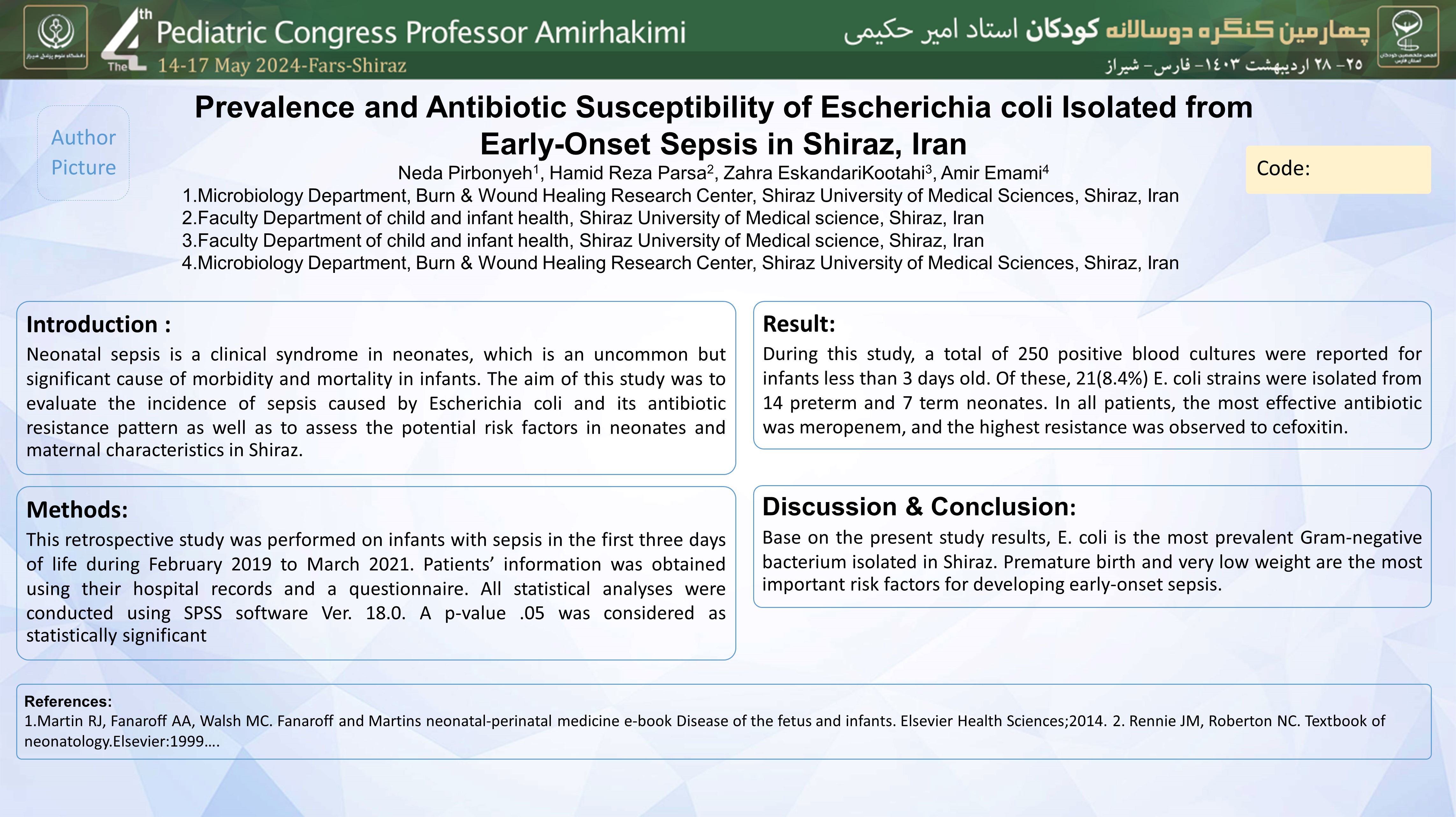بررسی شیوع و حساسیت آنتی بیوتیکی اشریشیا کلی درسپسیس زودرس، شیراز، ایران
کد: G-1061
نویسندگان: Aliakbar Rezaei ℗, Fatemeh Javanmardi, Neda Pirbonyeh, Hamid Reza Parsa, Zahra Eskandari Kootahi, Amir Emami ©
زمان بندی: زمان بندی نشده!
دانلود: دانلود پوستر
خلاصه مقاله:
خلاصه مقاله
Background: Neonatal sepsis is a clinical syndrome in neonates, which is an uncommon but significant cause of morbidity and mortality in infants. The aim of this study was to evaluate the incidence of sepsis caused by Escherichia coli and its antibiotic resistance pattern as well as to assess the potential risk factors in neonates and maternal characteristics in Shiraz. Material & Method: This retrospective study was performed on infants with sepsis in the first three days of life during February 2019 to March 2021. Patients’ information was obtained using their hospital records and a questionnaire. All statistical analyses were conducted using SPSS software Ver. 18.0. A p-value .05 was considered as statistically significant Findings: During this study, a total of 250 positive blood cultures were reported for infants less than 3 days old. Of these, 21(8.4%) E. coli strains were isolated from 14 preterm and 7 term neonates. In all patients, the most effective antibiotic was meropenem, and the highest resistance was observed to cefoxitin. Conclusion: Base on the present study results, E. coli is the most prevalent Gram-negative bacterium isolated in Shiraz. Premature birth and very low weight are the most important risk factors for developing early-onset sepsis.
